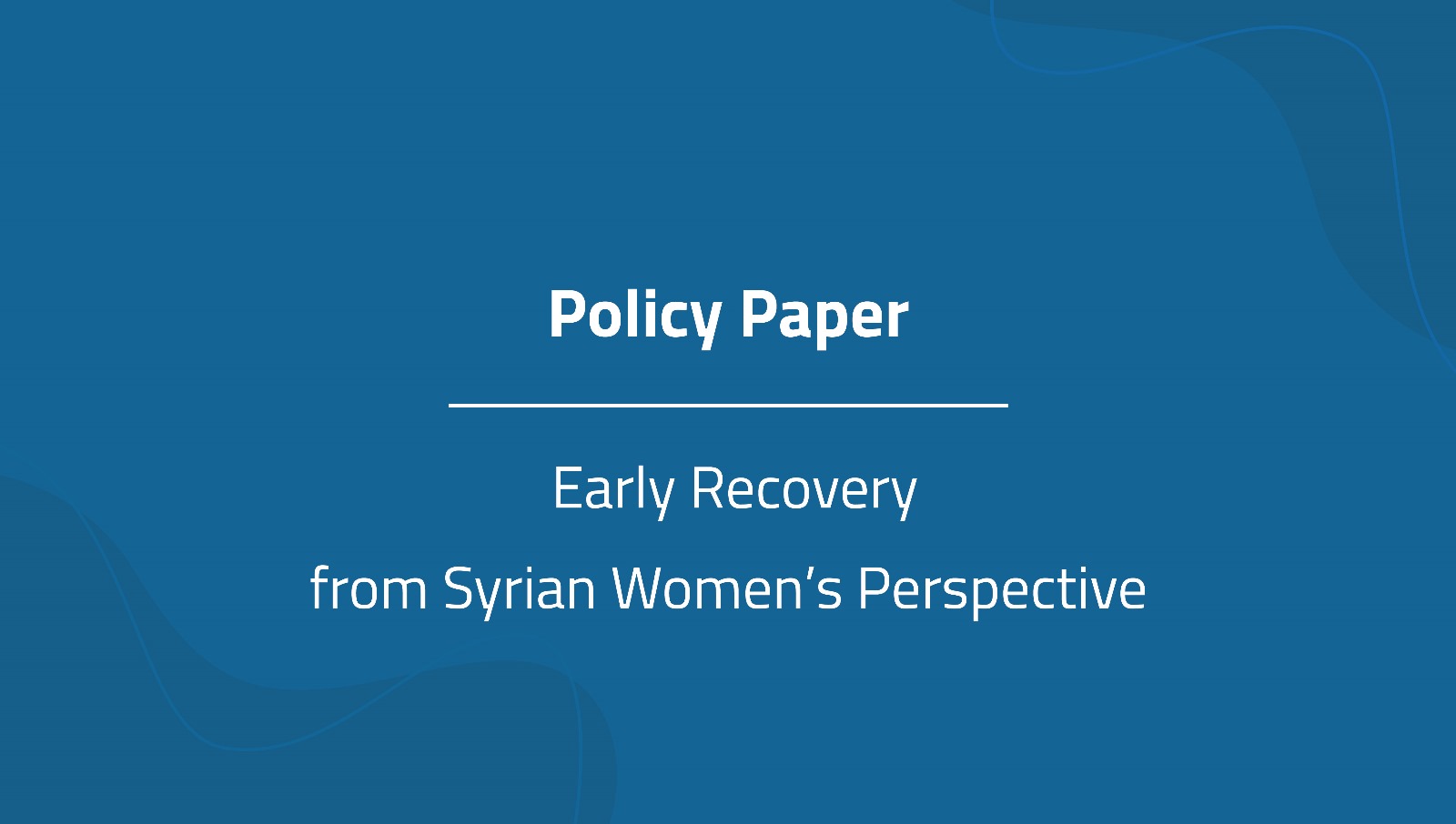Policy Paper – Early Recovery from Syrian Women’s Perspective
- updated: March 7, 2024
- |
“Early recovery needs to be sustainable, a step towards getting out of crises, and formulation of the features of change”
The Syrian Women’s Political Movement (SWPM) would like to thank all those who contributed to accomplishing this publication, individuals and entities, namely the Women’s International League for Peace and Freedom (WILPF), and all SWPM members and staff who assisted with the national consultations.
This work would not have been possible without the Syrian women who participated in the consultations and who, despite the dire conditions, were committed to this work to ensure that the voices of Syrian women are heard.
SWPM National Consultations team members: Khozama Darwish, Rowaida Kanaan, Sabiha Khalil, Lina Wafai, Wejdan Nassif
Researcher: Hawazen Khaddaj
This policy paper aims to present the vision and perspective of 120 Syrian women – from different regions, cultural, religious, and ethnic backgrounds, and distinct educational and living standards – of the early recovery process and the extent to which it meets their needs, advances their basic rights, and achieves justice for them. The paper also presents their perceptions and visions to improve early recovery projects, such they enhance women’s ability to endure conditions where they are, to deal with shocks and pressures, to transform early recovery into a sustainable recovery from crises, and to formulate the features of social change. It should be noted that the preparation of this paper came at a time when the city of Suwayda was witnessing peaceful demonstrations demanding political and economic change.
The importance of this paper is highlighted in its demonstration of women’s visions and perceptions of the early recovery process and building their resilience capacities as an effective force in promoting the path of development, formulating the features of social change, and addressing the factors rooted in society, economies, and political structures, in order to correct what was prevalent and rebuild for the better.
